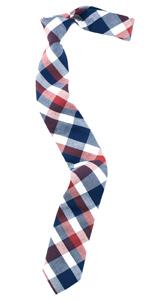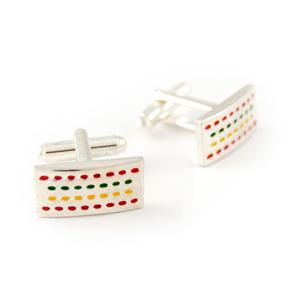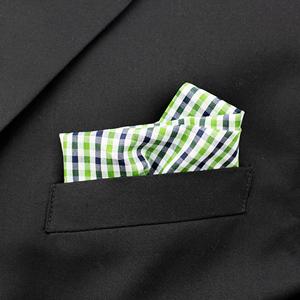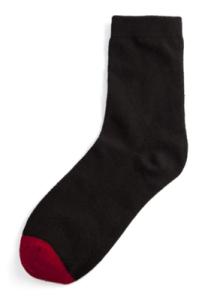One of the biggest concerns men have regarding fashion and their personal style is related to accessories. Most men like to wear accessories, but they tend to hold back because they don’t know how to do it.
It is true that it can be hard to wear one or more accessories if you don’t know where to begin, which is why we have put together this guide in which we offer a list of 5 things to look out for when accessorizing your outfits.
Following these guidelines will ensure you that you will be making the right choices for you and that you will look appropriate and stylish.
Sometimes it can be hard to find accessories for men, but some brands have specialized in offering men unique styles and designs. Finding a store, regardless of whether it is on- or offline that sells great accessories is a crucial starting point when it comes to accessorizing your outfits. As a “meta-rule”, we strongly advise you to find a store that offers accessories that reflect your personality, but to also be open to new discoveries and aesthetics.
There are many fantastic brands out there, but not all of them are part of the mainstream. For example, one brand that is dedicated to offering men a wide range of great accessories is Ulterior Motive, a company which we have been familiar for a while and enjoy. Their designs are very modern and dynamic and one of the main things we like about them is the fact that they feature a series of colors and patterns, which is something the world of men’s fashion needs.
So, with these things in mind, let’s take a look at the 5 things you should consider when buying and wearing accessories:
1. Size

The Cassiopeia Sea tie by Ulterior Motive
The number one thing you need to look out for when buying any accessory is the size. There is no right or wrong size, but there is a crucial rule you need to make sure you follow. This rule is that the size of your accessories should be proportionate to your body size. Men who are larger should wear wider ties, bigger watches and thicker necklaces, while men who have smaller frames should opt for skinny ties, thin chains and light hats. Medium-sized men should wear average-size accessories to look proportionate and polished.
2. Metals

Metals are neutral, but if your metal accessories feature other colors, make sure you make use of those colors at least one more time in your outfit
Many men have issues regarding their metals, as they know that their grandfathers told them that their metals always need to match. This is an outdated rule, which should not be followed anymore. Metals are neutrals and can be both worn with anything and mixed among them. It’s alright to wear both silver and gold at the same time. Moreover, remember that since gold and silver are neutrals, they can be matched to any color, pattern or print. Which brings us to our next point.
3. Colors

A colorful pocket square such as the Gingham Garden by Ulterior Motive can style up even a very conservative suit
In the world of fashion, some colors are considered “neutrals”. Neutrals, which are white, beige, gray, black, tan, khaki, ivory, etc., can be matched to any other color and do not count as “colors” in color schemes.
When it comes to creating color schemes, you should always make sure that you create harmonious color palettes and not disruptive ones.
To do this, you can use the color wheel and follow a few simple rules. For example, one rule would be that colors that are close to each other on the color spectrum, such as red and orange, or blue and green go together well and create calming color combinations, while colors that lie on opposite sides of the spectrum also create great combinations, but these are more striking due to their contrasts.
The first type is more appropriate for business and semi-formal outfits, while the second is better for urban and casual looks. Always make sure that you incorporate all the accessories you are planning to wear in the color scheme for the overall outfit.
There are other ways to create color combinations and you can discover them in our guide to coordinating the colors of your clothes.
4. Prints, patterns and textures
When it comes to wearing prints, patterns or textures there are two options:
a. You wear one single print, pattern or texture. In case you are wearing only solid colors and one print, if you want to go for a safe bet, you can either pair the print with a neutral you can incorporate one of the colors you are wearing in your clothes in your accessories. For example, if you are wearing a green shirt, you can pair it with a tie that features more colors, and among them, the green of your shirt.
b. You wear two or more prints, patterns or textures. In this case, you should always make sure that they are different one from the other in terms of size. For example, if you are wearing a tie that features wide stripes, if you want to wear for example a belt that also features stripes (or any other piece for that matter: shirt, pants, jacket), you should make sure that the print, pattern or texture of the second pattern is smaller. Wide stripes go with small stripes, small dots, small paisley, etc. and vice versa.
Remember that the difference between prints, patterns and textures is that a print is an image that has a structured composition, a pattern is a tiled image and a texture is something you can not only see, but feel with your fingers as well.
Moreover, always take into consideration that prints, patterns and textures are more common on casual accessories than on business or formal ones.
5. Materials

Don’t forget that your socks are a very important part of your outfits
The rule of thumb you should know about your accessories’ materials is that they should be cohesive to the materials of the clothes you are wearing and, in case you are wearing more accessories, to each other. This does not mean that they should be made from the same material, but some materials such as wood, plastic or cotton are more casual, while silk, precious stones and metals are more on the formal side. Gold, silver and leather are materials that fall in both categories and can be worn with both casual and dressy outfits. When it comes to these three, it’s the design that dictates the tone rather than the material.
What you should always look out for is not to mix materials from different families. The purpose of accessories is to refine, embellish and support an outfit, not to be the center of it or to break it. Wearing materials from the same family is going to make your outfits look more cohesive, put together and structured.
As an extra tip, you should always remember that, while your accessories should always flow, they should complement each other and not match exactly. Try to avoid wearing the same thing twice, such as a matching tie to a pocket square.
With these rules in mind, you can always be sure that your outfits will look great and that your accessories will be suites to your body and to occasion you are creating a look for.
Fraquoh and Franchomme
Further reading:
For more on how to match particular accessories, visit our archive on this topic.
P.S. How do you choose your accessories? What accessories do you like to wear? Share your thoughts in the comments below! For more articles on style, fashion tips and cultural insights, you can subscribe to Attire Club via e-mail or follow us on Facebook or Twitter!
Share on Tumblr0
